-
 bitcoin
bitcoin $87959.907984 USD
1.34% -
 ethereum
ethereum $2920.497338 USD
3.04% -
 tether
tether $0.999775 USD
0.00% -
 xrp
xrp $2.237324 USD
8.12% -
 bnb
bnb $860.243768 USD
0.90% -
 solana
solana $138.089498 USD
5.43% -
 usd-coin
usd-coin $0.999807 USD
0.01% -
 tron
tron $0.272801 USD
-1.53% -
 dogecoin
dogecoin $0.150904 USD
2.96% -
 cardano
cardano $0.421635 USD
1.97% -
 hyperliquid
hyperliquid $32.152445 USD
2.23% -
 bitcoin-cash
bitcoin-cash $533.301069 USD
-1.94% -
 chainlink
chainlink $12.953417 USD
2.68% -
 unus-sed-leo
unus-sed-leo $9.535951 USD
0.73% -
 zcash
zcash $521.483386 USD
-2.87%
How is Ethereum's Gas fee calculated?
Ethereum's gas fees, the transaction costs to process network activities, fluctuate based on network demand, gas limit, and base fee, but can be reduced by waiting for off-peak hours or using gas-efficient tools and networks.
Feb 18, 2025 at 12:36 pm
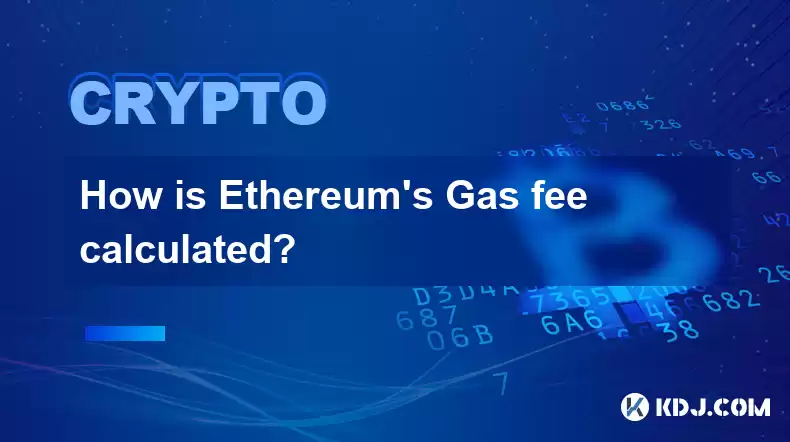
- Ethereum gas fees represent the transaction costs paid to miners for processing network transactions.
- Gas fees fluctuate based on network congestion, gas limit, and base fee.
- Strategies for reducing gas fees include waiting for off-peak hours, exploring alternative blockchains, and utilizing gas optimization tools.
- Network Congestion: When the Ethereum network experiences high traffic, demand for block space increases, leading to higher gas fees.
- Gas Limit: Users specify the maximum amount of gas they are willing to pay for a transaction. Miners will process the transaction if the actual gas usage is within this limit.
- Base Fee: This is the minimum fee required to include a transaction in a block. It is determined by a complex algorithm that adjusts based on network congestion.
- Gas Tips: Miners can optionally receive additional "tips" from users to prioritize processing their transactions faster.
- The total gas fee is calculated as the product of the gas limit and the gas price.
- Gas Limit: As mentioned earlier, users set the maximum gas they are willing to spend.
- Gas Price: This is determined by the formula: Gas Price = Base Fee + Gas Tip
- Date and Time: Gas fees tend to be higher during peak hours (usually early afternoons) and weekdays.
- Transaction Complexity: Certain transactions, such as smart contract deployments, require more gas than others.
- Network Upgrades: Major network upgrades can impact gas fees due to changes in transaction processing efficiency.
- Choose Off-Peak Hours: Transactions conducted during less congested periods typically incur lower fees.
- Explore Alternative Blockchains: Consider using other blockchains with lower gas fees, such as Polygon or Solana.
- Optimize Gas Usage: Use gas optimization tools to minimize the gas required for your transactions.
- Join Gas-Efficient Networks: Participate in platforms like EIP-1559 Flashbots to aggregate transactions and share gas costs.
The reasonable gas fee depends on the current network congestion and the urgency of your transaction. For faster processing, consider higher gas fees during peak hours.
2. How often does the base fee change?The base fee is adjusted periodically based on network demand. The interval between adjustments is currently set at 12 minutes.
3. What are the benefits of paying a higher gas tip?Higher gas tips increase the probability of your transaction being prioritized by miners for faster processing. However, it does not guarantee immediate processing.
4. Can gas fees be refunded?Typically, no. Once a transaction is processed and included in a block, the associated gas fees are consumed and cannot be refunded.
5. What is the impact of EIP-1559 on gas fees?EIP-1559 is a protocol upgrade that introduced a dynamic base fee system, making gas fee estimation more predictable and reducing fee volatility.
Disclaimer:info@kdj.com
The information provided is not trading advice. kdj.com does not assume any responsibility for any investments made based on the information provided in this article. Cryptocurrencies are highly volatile and it is highly recommended that you invest with caution after thorough research!
If you believe that the content used on this website infringes your copyright, please contact us immediately (info@kdj.com) and we will delete it promptly.
- Ozak AI Fuels Network Expansion with Growth Simulations, Eyeing Major Exchange Listings
- 2026-02-04 12:50:01
- From Digital Vaults to Tehran Streets: Robbery, Protests, and the Unseen Tears of a Shifting World
- 2026-02-04 12:45:01
- Bitcoin's Tightrope Walk: Navigating US Credit Squeeze and Swelling Debt
- 2026-02-04 12:45:01
- WisdomTree Eyes Crypto Profitability as Traditional Finance Embraces On-Chain Innovation
- 2026-02-04 10:20:01
- Big Apple Bit: Bitcoin's Rebound Hides a Deeper Dive, Say Wave 3 Watchers
- 2026-02-04 07:00:03
- DeFi Vaults Poised for 2026 Boom: Infrastructure Matures, Yield Optimization and Liquidity Preferences Shape the Future
- 2026-02-04 06:50:01
Related knowledge
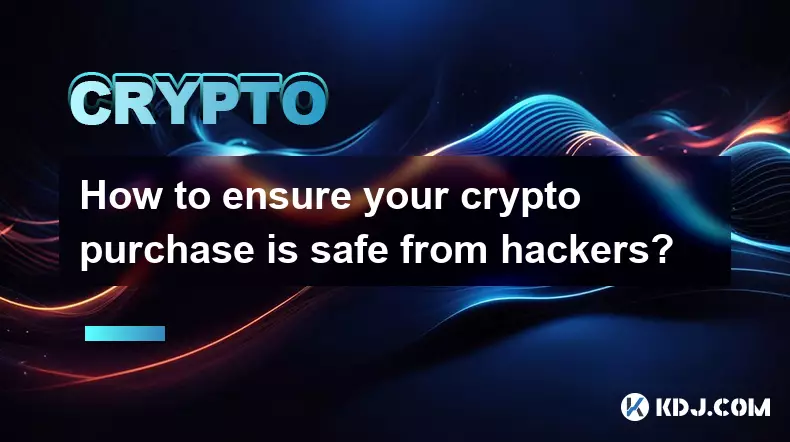
How to ensure your crypto purchase is safe from hackers?
Jan 28,2026 at 11:19pm
Secure Wallet Selection1. Choose hardware wallets for long-term holdings—devices like Ledger and Trezor isolate private keys from internet-connected s...
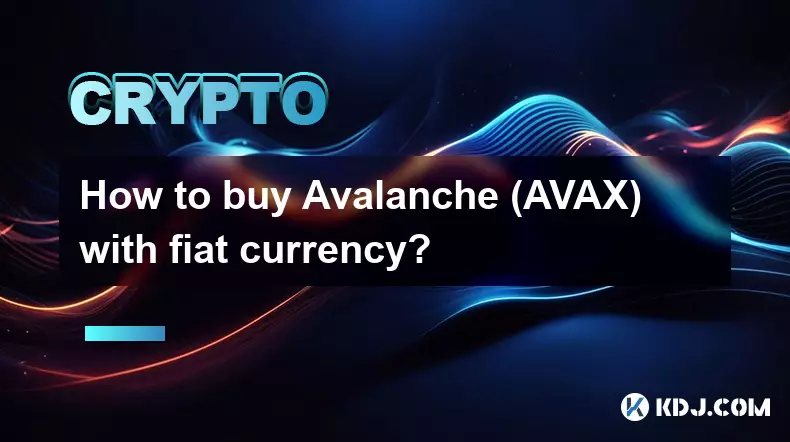
How to buy Avalanche (AVAX) with fiat currency?
Jan 29,2026 at 12:40pm
Choosing a Reliable Exchange Platform1. Identify exchanges licensed in your jurisdiction that support AVAX trading pairs with major fiat currencies li...
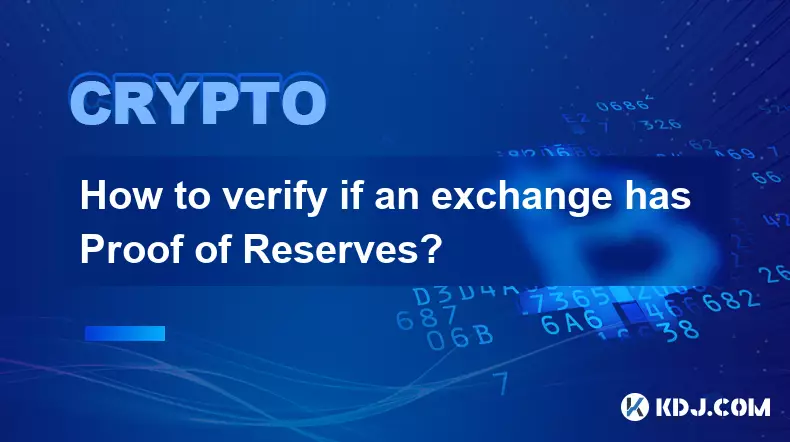
How to verify if an exchange has Proof of Reserves?
Jan 30,2026 at 06:39am
Understanding Proof of Reserves1. Proof of Reserves (PoR) is a cryptographic audit mechanism that demonstrates an exchange holds sufficient on-chain a...
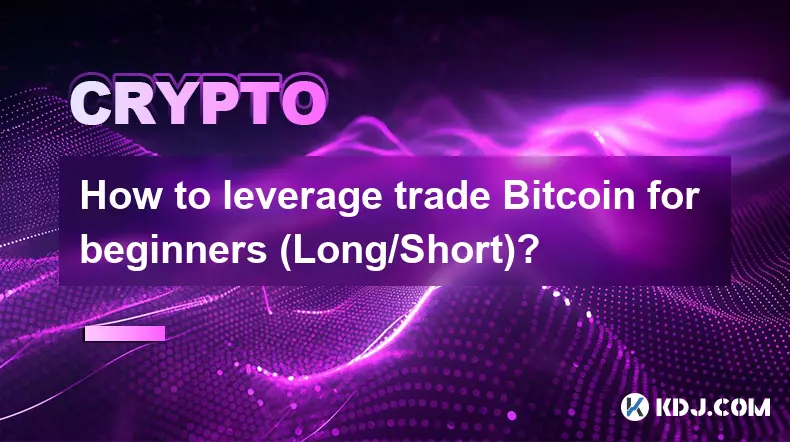
How to leverage trade Bitcoin for beginners (Long/Short)?
Jan 29,2026 at 03:19pm
Understanding Bitcoin Price Movements1. Bitcoin’s price is heavily influenced by macroeconomic indicators such as interest rate decisions, inflation d...
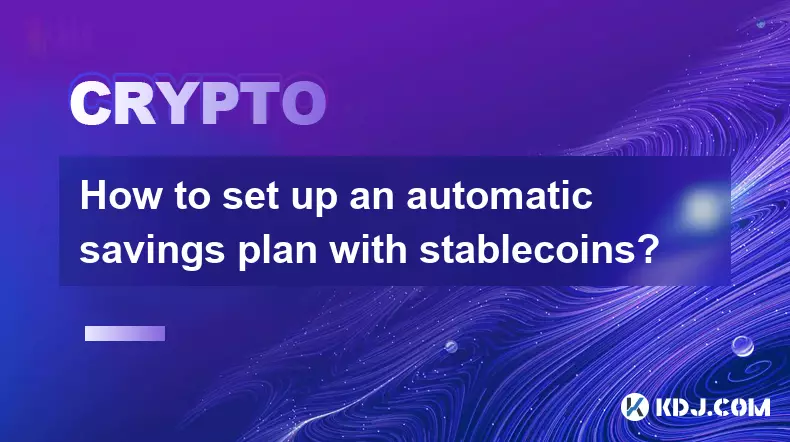
How to set up an automatic savings plan with stablecoins?
Jan 29,2026 at 06:39am
Understanding Stablecoin Savings Mechanics1. Stablecoins are digital assets pegged to fiat currencies like the US dollar, designed to minimize volatil...
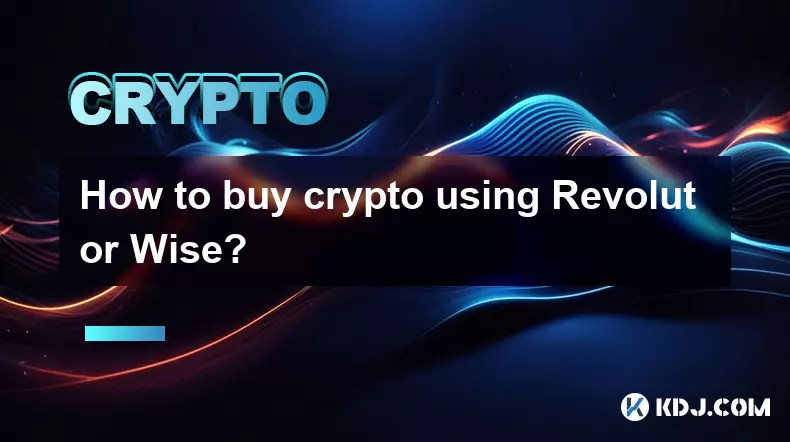
How to buy crypto using Revolut or Wise?
Jan 28,2026 at 11:00pm
Setting Up Your Revolut Account for Crypto Purchases1. Download the Revolut app and complete identity verification using government-issued ID and a se...

How to ensure your crypto purchase is safe from hackers?
Jan 28,2026 at 11:19pm
Secure Wallet Selection1. Choose hardware wallets for long-term holdings—devices like Ledger and Trezor isolate private keys from internet-connected s...

How to buy Avalanche (AVAX) with fiat currency?
Jan 29,2026 at 12:40pm
Choosing a Reliable Exchange Platform1. Identify exchanges licensed in your jurisdiction that support AVAX trading pairs with major fiat currencies li...

How to verify if an exchange has Proof of Reserves?
Jan 30,2026 at 06:39am
Understanding Proof of Reserves1. Proof of Reserves (PoR) is a cryptographic audit mechanism that demonstrates an exchange holds sufficient on-chain a...

How to leverage trade Bitcoin for beginners (Long/Short)?
Jan 29,2026 at 03:19pm
Understanding Bitcoin Price Movements1. Bitcoin’s price is heavily influenced by macroeconomic indicators such as interest rate decisions, inflation d...

How to set up an automatic savings plan with stablecoins?
Jan 29,2026 at 06:39am
Understanding Stablecoin Savings Mechanics1. Stablecoins are digital assets pegged to fiat currencies like the US dollar, designed to minimize volatil...

How to buy crypto using Revolut or Wise?
Jan 28,2026 at 11:00pm
Setting Up Your Revolut Account for Crypto Purchases1. Download the Revolut app and complete identity verification using government-issued ID and a se...
See all articles










































































